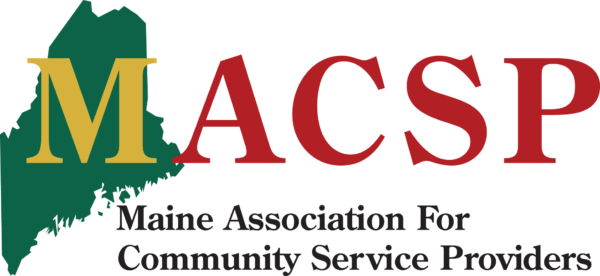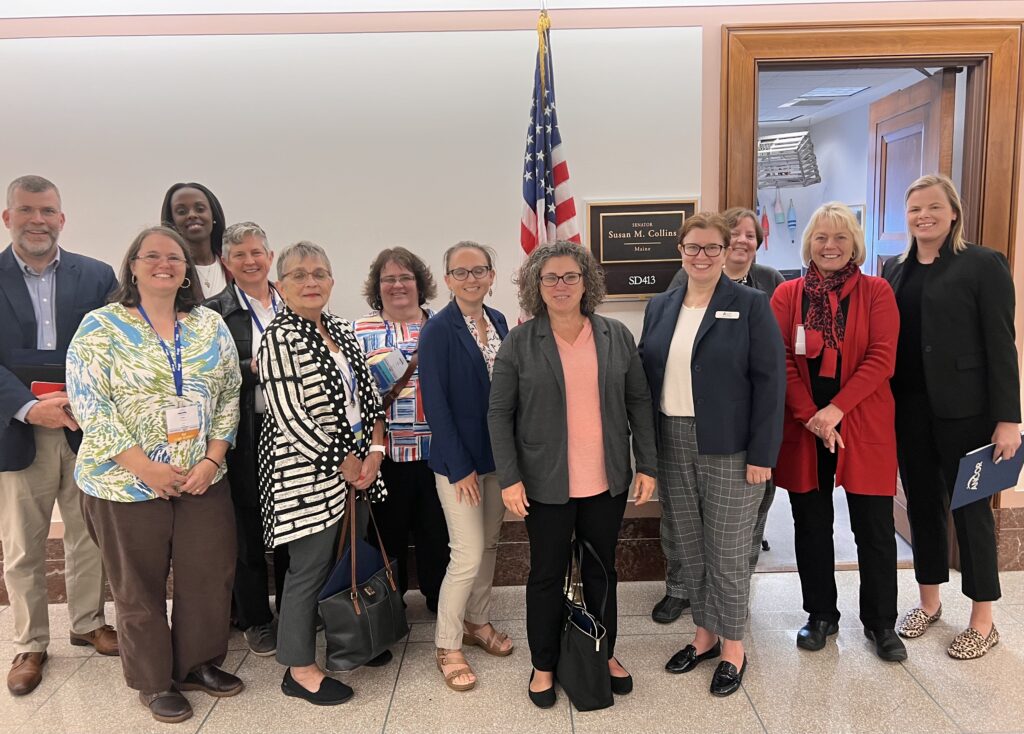Advocacy
Learn More About Our Memberships
Advocacy
MACSP lends a collective voice and advocates on public policy matters to help our members build and sustain quality services for thousands of Mainers with Intellectual Disabilities, Autism Spectrum Disorder, or Acquired Brain Injuries.
Throughout the year we
- Facilitate relationship building between providers and state policy-makers
- Review and provide updates on administrative policy matters including proposed MaineCare rule changes as well as service waiver renewals and amendments
- Track and analyze hundreds of bills and testify on legislation that impacts on our community
- Organize providers, their workforce and the people they serve to identify concerns, connect with their legislators and submit testimony on bills before the State Legislature or rules considered by the Department of Health and Human Services.
Public Policy Priorities
Operating within a longstanding and acute workforce crisis and emerging from a historic public health emergency, providers of ID, ASD and BI services continue to struggle across the state to keep people with disabilities supported in their homes and integrated in their communities.
Once employing over 10,000 Direct Support Professionals to support adults with disabilities, we estimate that we have lost upwards of 30% of our workforce over the last three years. Turnover and overtime rates remain high. Providers remain concerned about the support needed throughout the system to support people with the most complex medical and behavioral needs, the collapse and closure of group homes and community supports programs and a first ever waitlist for case management services, a service that is needed in order to receive services under Section 21 and 29 services.
Our members provide services to more than 5000 adults under MaineCare Sections 13, 18, 20, 21, 29, 50 and 97 (Appendix F). With the exception of Section 21 Agency Home Support service, commonly known as Group Home Service and Community Supports programs under Sections 21 and 29, providers have seen a slow and growing stabilization of staffing and services. This is directly tied to the state’s commitment to ensure that the labor costs of direct care service rates equal 125% of the state’s minimum wage and that annual COLAs are in place as part of the state’s new codified rate setting system.
This pre-pandemic 125% initiative was driven by legislators, providers, frontline workers and families and took three years to pass. While rates are not wholly competitive, after a decade or more of stagnation, the state’s investment in direct care services is a step in the right direction.
MACSP Bi-Annual Membership Survey
Link below for the latest information on workforce and service capacity within the Intellectual Disability-Autism-Brain Injury provider network, click here.
131st Legislature
View our latest action alerts here.
MACSP Legislative Initiatives
Secure rate studies for Group Home and Community Support services in 2024 and establish a Group Home per diem/daily rate
LD 744 Resolve, to Direct the Department of Health and Human Services to Perform Rate Studies and Rate Determinations for Providers of Certain Services for Adults with Intellectual Disabilities or Autism Spectrum Disorder
LD 744 Factsheet
Secure equitable CDS tuition reimbursement for Special Purpose Preschools
LD 1309 An Act to Clarify Requirements for Payment of Tuition for Children with Disabilities by the Department of Education’s Child Development Services System
LD 1309 Factsheet
Helpful Links
Maine Legislature Homepage: http://legislature.maine.gov/
- Find your State Representative: https://legislature.maine.gov/house/house/MemberProfiles
- Find your State Senator: https://legislature.maine.gov/senate-home-page/find-your-state-senator
Sign up to Testify and/or submit testimony here: https://www.mainelegislature.org/testimony/
- Click on Public Hearing, then choose the Committee and then the date of the hearing.
- Choose the LD# you are looking for.
- If you intend to provide live testimony please be sure to check the box that says “I would like to present my testimony live” to facilitate receiving the link to join the Zoom Webinar.
- You can upload a file or type your testimony in the open box. Once you have provided the rest of the requested information you will check the box next to “I’m not a robot” and finally click the Submit/Register button
Testifying in Person
- Check the committee for sign up times. If you missed sign up, let the clerk know. Many chairs will allow you to testify last – after those who signed up have gone
- If you intend to testify in-person in the committee room, you are not required to register online or upload written testimony
- If you have written testimony when you testify in-person, bring 20 copies. If your testimony is part of the budget hearings, bring 40 copies.

